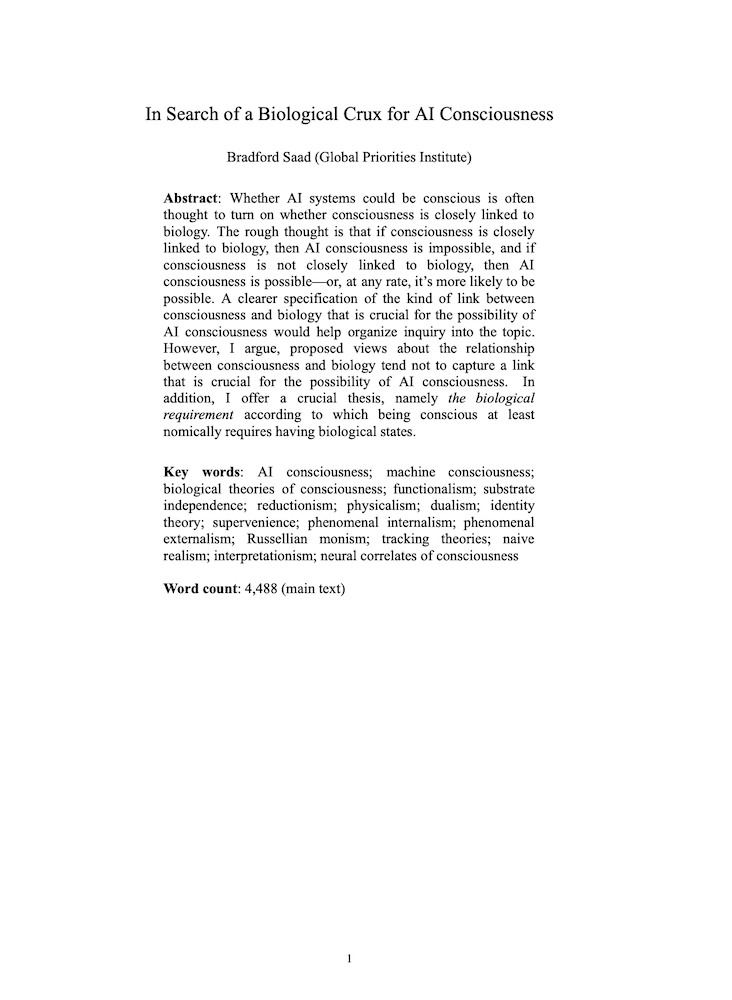In search of a biological crux for AI consciousness
Bradford Saad (Global Priorities Institute, University of Oxford)
GPI Working Paper No. 18-2024
Whether AI systems could be conscious is often thought to turn on whether consciousness is closely linked to biology. The rough thought is that if consciousness is closely linked to biology, then AI consciousness is impossible, and if consciousness is not closely linked to biology, then AI consciousness is possible—or, at any rate, it’s more likely to be possible. A clearer specification of the kind of link between consciousness and biology that is crucial for the possibility of AI consciousness would help organize inquiry into the topic. However, I argue, proposed views about the relationship between consciousness and biology tend not to capture a link that is crucial for the possibility of AI consciousness. In addition, I offer a crucial thesis, namely the biological requirement according to which being consciousness at least nomically requires having biological states.
Other working papers
Desire-Fulfilment and Consciousness – Andreas Mogensen (Global Priorities Institute, University of Oxford)
I show that there are good reasons to think that some individuals without any capacity for consciousness should be counted as welfare subjects, assuming that desire-fulfilment is a welfare good and that any individuals who can accrue welfare goods are welfare subjects. While other philosophers have argued for similar conclusions, I show that they have done so by relying on a simplistic understanding of the desire-fulfilment theory. My argument is intended to be sensitive to the complexities and nuances of contemporary…
Prediction: The long and the short of it – Antony Millner (University of California, Santa Barbara) and Daniel Heyen (ETH Zurich)
Commentators often lament forecasters’ inability to provide precise predictions of the long-run behaviour of complex economic and physical systems. Yet their concerns often conflate the presence of substantial long-run uncertainty with the need for long-run predictability; short-run predictions can partially substitute for long-run predictions if decision-makers can adjust their activities over time. …
The paralysis argument – William MacAskill, Andreas Mogensen (Global Priorities Institute, Oxford University)
Given plausible assumptions about the long-run impact of our everyday actions, we show that standard non-consequentialist constraints on doing harm entail that we should try to do as little as possible in our lives. We call this the Paralysis Argument. After laying out the argument, we consider and respond to…

